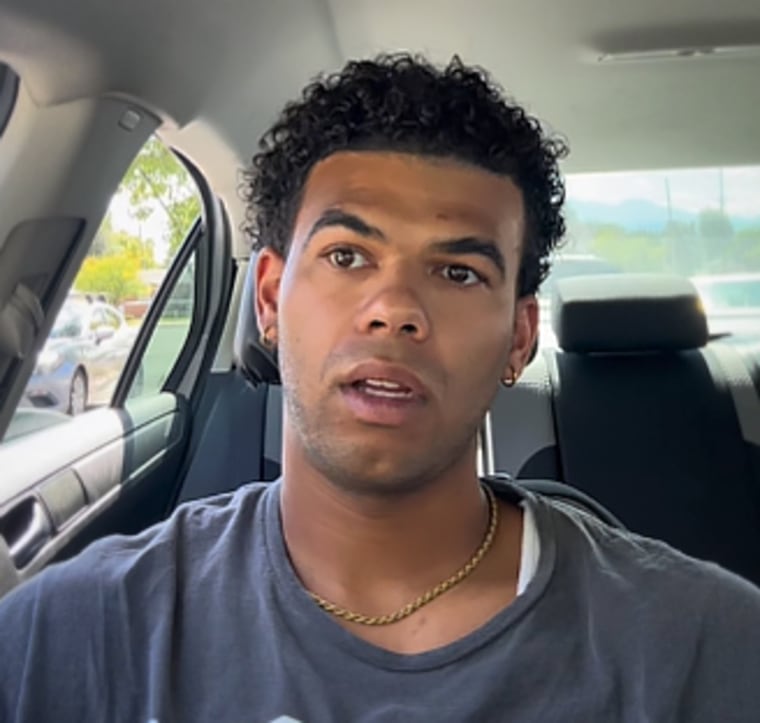A member of the “Black Menaces,” a group of Black Brigham Young University students who regularly share on social media video interviews with white classmates, said that a university staff member confronted him while he was conducting an interview last week and that a classmate harassed him immediately afterward.
Sebastian Stewart-Johnson, a senior studying political science at the university in Provo, Utah, said he was recording an interview with a student on Sept. 19 when a BYU staff member approached and told him to immediately desist or else she would call 911.
After the argument, he said, the woman left. It was not clear whether the staff member called 911, but Stewart-Johnson said he never heard anything else from her or the police.
After the incident, he said, he was followed by another student, who had been recording him before the confrontation with the staff member. The student continued to follow him for 15 minutes, Stewart-Johnson said, and stood in front of his camera operator during interviews in an attempt to obstruct recording.

In a video shared on the Black Menaces’ social platforms, Stewart-Johnson, 23, is seen asking the student following him whether he felt it was OK to follow people.
“Yeah, especially you guys,” the man responds. “You guys are the worst piece of journalism I’ve ever seen.”
The Black Menaces is a group of students at BYU who interview fellow students on camera about race, faith, equity and political topics. Members said in April 2022 that it was created to highlight the challenges that come with being a person of color on campus, where only 1% of 34,000 students are Black. BYU is a private university affiliated with the Church of Jesus Christ of Latter-day Saints.
BYU’s filming and photography policy says people or businesses cannot record on campus for “promotional marketing, commercial, advocacy, or similar purposes.” That extends to anyone recording work that generates income through ads, music sales or other means. Stewart-Johnson said he does not make any money off ad revenue on Black Menaces’ videos.
The policy also says people “may take video and photographs for personal use that are unobtrusive, are in keeping with other campus policies, and do not interrupt campus programs, classes, or activities.”
The Cougar Chronicle, a conservative student-run newspaper that is unaffiliated with the university, posted on Instagram that its editor-in-chief, Jacob Christensen, was the man following Stewart-Johnson and that he was encouraged to do so by the unidentified staff member. Neither the Chronicle nor Christensen responded to a request for comment.
“It was irritating me a lot, because I’m a Black person who goes to this campus. There’s not much for me to do to protect myself,” said Stewart-Johnson, a senior studying political science.
The Black Menaces’ social media posts received national attention last year, and today the group has more than 700,000 followers on TikTok.
In an Instagram video posted from his car shortly after the interactions with the faculty member and the student, Stewart-Johnson said he believes the incident wouldn’t have happened to a white student conducting similar interviews. He said he felt so frustrated and unsafe after the incidents that he left campus. He said he didn’t return for two days.
Todd Hollingshead, BYU’s media relations manager, said that he didn’t have much information about what happened and that the university’s Office of Belonging reached out to Stewart-Johnson to talk about his concerns.
“We want to help all BYU students feel a sense of belonging and community on our campus,” Hollingshead said in an email.
Stewart-Johnson confirmed that the Office of Belonging reached out and that he ended up filing a report with the office, but he said he doesn’t “really have much trust in them.”
Stewart-Johnson said that after having taken a week off recording after the incident, he resumed recording Tuesday.
“I was very lucky that multiple people came up to me to say sorry,” he said.